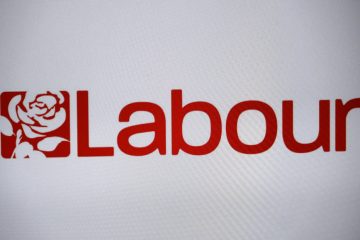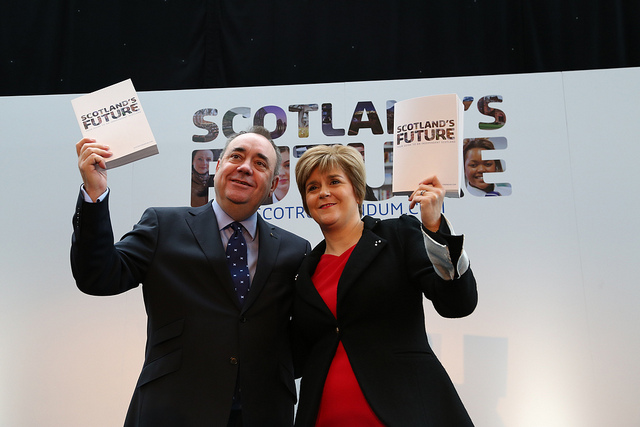Royal Archives That We Pay for but Aren’t Allowed to Read: A Brief History
The Guardian recently reported that the Cabinet Office is blocking access to some of the papers of Lord and Lady Mountbatten. The papers were ‘acquired for the nation’ in 2010, with the assistance of (what is now) the National Lottery Heritage Fund. Announcing the grant, the Fund stated: “[T]he University of Southampton is on track to ensure that the records of those who stood at the very forefront of British political life will be preserved for future generations of historians, scholars and the public to explore and enjoy.” The Guardian reports that, despite an order from the Information Commissioner, the university has refused to allow access to some of the Mountbatten MSS, in particular the Mountbattens’ diaries and some correspondence. Although the reports do …
The Crown’s Irresponsible Adviser, the Governor General, and the Australian Constitutional Crisis of 1975: A Smoking Gun?
On 14 July, following legal proceedings, the National Archives of Australia released correspondence between Sir John Kerr, who served as Governor General of Australia from 1974–77, and Sir Martin Charteris, the Principal Private Secretary (PPS) to the queen. The letters concern Kerr’s decision to dismiss Gough Whitlam, the Labor Prime Minister, who was then locked in a battle between the House of Representatives, where he held a majority, and the Senate, which opposed him and was blocking supply (the federal budget). Leading scholars, such as Anne Twomey, as well as Buckingham Palace, have argued that the letters contain no smoking gun connecting Kerr’s actions to the monarch or her PPS. However, we believe that we can see a wisp of smoke. And it lingered. Kerr and Charteris …

How efficient and effective are the police?
We have just finished an 18-month study of value for money in British policing, which the Police Foundation is kindly helping us launch in the House of Lords on Monday 20 March. Our main finding is that crime, as reported by the public, has not risen since 2010, nor has public confidence in the police declined. As the period has seen a sharp reduction in public expenditure on policing, that suggests that value for money has been improving. The creation of Police and Crime Commissioners (PCCs) in 2012 may have contributed modestly to this result. The study was commissioned by CIPFA (the Chartered Institute of Public Finance and Accountancy) and conducted by the Gwilym Gibbon Centre for Public Policy at Nuffield College, University of Oxford. …

The forgotten Geordie revolt of 1977 – and its lessons for the UK today
A long time ago I was a Labour councillor who inadvertently brought down the 1974-9 Labour government. The government could only have lasted a few weeks longer in any case, so I have no regrets. The story deserves retelling, because it has important lessons for today. The Labour government elected in 1974 was the first to realise that it faced an existential threat in Scotland. The Scottish National Party (SNP) won 30 per cent of the vote, but only 15 per cent of the seats, in Scotland in October 1974. The Labour Party’s leaders had forgotten Keir Hardie and Ramsay MacDonald, who both started in politics as campaigners for Scottish home rule. After 1945, Labour became the party of the welfare state, …

Scotland, Ireland, and Brexit: what history tells us
The BBC published maps of the Remain and Leave votes on 23 June. The Remain map tells us lots of fascinating things, but this post will focus on the Celtic fringe and the historical context for why people may have voted the way they did. Most of Wales is like most of England, with the metropolitan city (Cardiff) voting Remain and the rest of the country mostly for Leave. Note, however, that there is a little dark (pro-Remain) strip in the north and west. The patterns of settlement laid down centuries ago by the English conquest of Wales still leave their mark as that strip is both Welsh-speaking and Remain-leaning. Welsh speakers take their political cues from Plaid Cymru, which …

Why Scotland should adopt the Land Value Tax
The Commission on Local Tax Reform was set up by the Scottish government in February 2015 to consider reform of local government taxation. In this article, submitted as written evidence to the Commission, I make the case for a land value tax (LVT).
1. Local tax should be based on…
The value of the land you own. This is for reasons first set out by Adam Smith in Wealth of Nations (WN) Book V. I am pleased that the Cabinet Secretary for Finance referred to this in his speech introducing Land and Buildings Transactions Tax (LBTT).
A land value tax is the best of all taxes for three reasons.
Land doesn’t move and can’t be hidden.
Land tax best satisfies Smith’s canons of taxation (proportionate to benefits received; certain; convenient; non-distorting – see Wealth of Nations, Book V.ii.b)
It taxes ground-rents, which Smith calls ‘a still more proper subject of taxation than the rent of houses’, because ‘no discouragement will thereby be given to any sort of industry’.

On Smith Commission’s proposals on Scottish governance
The Report of the Smith Commission on further devolution of powers to the Scottish Parliament is a modest document – only 28 pages long. But it packs a big punch. In summer 2014, Lord Smith delivered the Commonweealth Games in Glasgow without fuss and to budget. By some magic, he has now got all five parties in the Scottish Parliament to agree to a set of proposals, which the UK Government also endorsed as soon as they were published on 27 November. The process involved some huge compromises, on all sides. Smith got all-party agreement to: Embed the Scottish Parliament so that it cannot be abolished by an Act at Westminster; Make statutory the rules for inviting one parliament to …

Scottish Independence: Some known unknowns
If the Scots vote Yes on 18 September 2014, they do not know what they will get, apart from the departure of Scottish MPs from Westminster. To borrow Donald Rumsfeld’s useful phrase the remaining terms of independence are ‘known unknowns’. The Scottish negotiators must enter discussions with several counterparties, the main ones being the European Union, NATO, and the rest of the United Kingdom . Let me discuss seven of these ‘known unknowns’.










